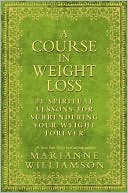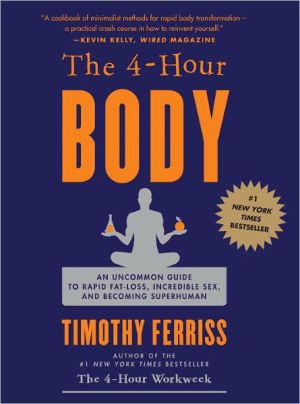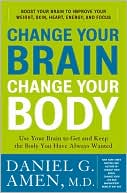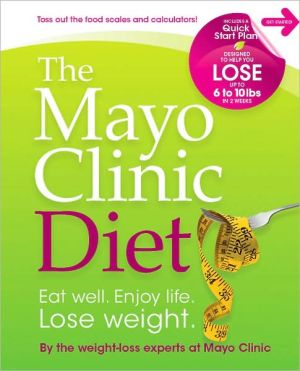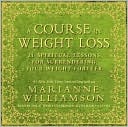The Healing of America: A Global Quest for Better, Cheaper, and Fairer Health Care
A New York Times Bestseller With an Explanation of the 2010 Health Reform Bill\ Bringing to bear his talent for explaining complex issues in a clear, engaging way, New York Times bestselling author T. R. Reid visits industrialized democracies around the world—France, Britain, Germany, Japan, and beyond—to provide a revelatory tour of successful, affordable universal health care systems. Now updated with new statistics and a plain-English explanation of the 2010 health care...
Search in google:
Bestselling author T. R. Reid guides a whirlwind tour of successful health care systems worldwide, revealing possible paths toward U.S. reform. In The Healing of America, New York Times bestselling author T. R. Reid shows how all the other industrialized democracies have achieved something the United States can?t seem to do: provide health care for everybody at a reasonable cost. In his global quest to find a possible prescription, Reid visits wealthy, free market, industrialized democracies like our own?including France, Germany, Japan, the U.K., and Canada?where he finds inspiration in example. Reid shares evidence from doctors, government officials, health care experts, and patients the world over, finding that foreign health care systems give everybody quality care at an affordable cost. And that dreaded monster ?socialized medicine? turns out to be a myth. Many developed countries provide universal coverage with private doctors, private hospitals, and private insurance. In addition to long-established systems, Reid also studies countries that have carried out major health care reform. The first question facing these countries?and the United States, for that matter?is an ethical issue: Is health care a human right? Most countries have already answered with a resolute yes, leaving the United States in the murky moral backwater with nations we typically think of as far less just than our own. The Healing of America lays bare the moral question at the heart of our troubled system, dissecting the misleading rhetoric surrounding the health care debate. Reid sees problems elsewhere, too: He finds poorly paid doctors in Japan, endless lines in Canada, mistreated patients in Britain, spartan facilities in France. Still, all the other rich countries operate at a lower cost, produce better health statistics, and cover everybody. In the end, The Healing of America is a good news book: It finds models around the world that Americans can borrow to guarantee health care for everybody who needs it. The Barnes & Noble Review There can be, in book reviews, a distressing tendency to bury the actual recommendation beneath the scintillating thoughts of the reviewer. (I have fallen prey to this myself. My thoughts are very scintillating.) Let's not make that mistake here. You should buy this book. It is the clearest and most useful contribution to the ongoing health care reform debate I've read. And, unlike most books that are described as a "useful contribution," it's a good read, too. The book's clarity comes from its thesis: The way America does things is not the only way things can be done. That simple refusal to remain inside the strictures of America's political debate -- where the argument is over how best to cover everyone while offending no one and changing nothing -- allows T. R. Reid to elegantly demonstrate how unnecessarily complex and inefficient and expensive and cruel our health care system really is.
Prologue: A Moral Question 11 A Quest For Two Cures 52 Different Models, Common Principles 163 The Paradox 284 France: The Vital Card 465 Germany: "Applied Christianity" 666 Japan: Bismarck on Rice 827 The UK: Universal Coverage, No Bills 1048 Canada: "Sorry to Keep you Waiting" 1269 Out of Pocket 14310 Too Big to Change? 16311 An Apple a Day 18612 The First Question 20513 Major Surgery 226An Afterword: "Obamacare" Explained 244Appendix: The Best Health Care System in the World 252A Note of Thanks 269Notes 273Index 281
\ Phillip LongmanReid acknowledges that the health systems in the countries he studied have their own problems. He also admits that none has figured out how to contain the global long-term trend toward higher costs as populations age, the spread of Western lifestyle and diet causes an epidemic of chronic illness, and as expensive new medical technologies become available. But he does demonstrate that [critics] put forward a distorted image when they contend that other industrialized countries ration health care and constrain patients' choice of doctors, deny effective care and, in essence, provide socialized medicine. Reid shows us how other advanced countries easily combine universal coverage and government regulation with entrepreneurialism and respect for market forces to produce high quality, low cost health care—a simple empirical truth we can no longer afford to ignore.\ —The Washington Post\ \ \ \ \ Abigail Zuger…what saves the book from slumping into a sack of anecdotes like Michael Moore's 2007 documentary Sicko is a steel backbone of health policy analysis that manages to trap immensely complicated concepts in crystalline prose. The Healing of America blends subjective and objective into a seamless indictment of our own disastrous system, an eloquent rebuttal against the arguments used to defend it, and appealing alternatives for fixing it.\ —The New York Times\ \ \ Publishers WeeklyWashington Post correspondent Reid (The United States of Europe) explores health-care systems around the world in an effort to understand why the U.S. remains the only first world nation to refuse its citizens universal health care. Neither financial prudence nor concern for the commonweal explains the American position, according to Reid, whose findings divulge that the U.S. not only spends more money on health care than any other nation but also leaves 45 million residents uninsured, allowing about 22,000 to die from easily treatable diseases. Seeking treatment for the flareup of an old shoulder injury, he visits doctors in the U.S., France, Germany, Japan and England-with a stint in an Ayurvedic clinic in India-in a quest for treatment that dovetails with his search for a "cure" for America's health-care crisis, a narrative device that sometimes feels contrived, but allows him valuable firsthand experience. For all the scope of his research and his ability to mint neat rebuttals to the common American misconception that universal health care is "socialized" medicine, Reid neglects to address the elephant in the room: just how are we to sell these changes to the mighty providers and insurers? (Sept.)\ Copyright © Reed Business Information, a division of Reed Elsevier Inc. All rights reserved.\ \ \ \ \ NewsweekIn his new book The Healing of America, the journalist T. R. Reid employs a clever device for surveying the world's health systems: he takes an old shoulder injury to various countries. In the United States, a top orthopedist recommends joint-replacement surgery, costing tens of thousands of dollars. In France and Germany, doctors steer him instead toward a regime of physical therapy. In Britain, they tell him to go home. In India, he is treated, quite effectively, with herbs, massage, and meditation.\ \ Reid argues we should follow other countries, where health care is fairer and cheaper and produces better results. He's right that we can learn much from practices elsewhere. But the lesson I took away from his book was somewhat different: health-care systems are not just policy choices, but expressions of national character and values. The alternatives he describes work not just because they're well designed but because they reflect the expectations and traditions of their societies.\ —Jacob Weisberg\ \ \ \ \ SlateIgnore the title (which, apart from being Sunday-schoolish, was used 12 years ago by the New Age spiritualist Marianne Williamson); a better would be Sick Around The World, which is what Reid called the excellent Frontline documentary he hosted on this topic last year. Even better: Around the World With My Bum Shoulder. Engagingly, Reid frames his inquiry by seeking relief for his aching right shoulder, which he injured while serving in the Navy in 1972. A surgeon at Bethesda Naval Hospital fixed it by inserting a stainless-steel screw into his clavicle, but three decades later Reid could no longer swing a golf club and could only just barely replace a hanging light bulb. In a show of the same sunny resourcefulness he displayed as a foreign correspondent for the Washington Post, Reid uses his ailment as a vehicle to explore the world's health systems.\ —Timothy Noah\ \ \ \ \ Kirkus ReviewsA timely survey-filled with important lessons for the United States-of how other nations have created systems that provide universal health care for their citizens. Washington Post correspondent and NPR commentator Reid (The United States of Europe: The New Superpower and the End of American Supremacy, 2004, etc.) sees the health-care issue as a moral question to which all other technologically developed countries have responded well, creating affordable, effective systems. The author outlines four basic models: the Bismarck, in which both health-care providers and payers are private; the Beveridge, in which "health care is provided and financed by the government, through tax payments"; the National Health Insurance (NHI) model, in which the providers are private but everyone pays into a government-run insurance program; and the out-of-pocket model, in which the patient pays with no insurance or government help. Elements of all four are present in the United States. The author took his own health problem-a stiff, painful shoulder-to doctors in France, Germany and Japan to see how the Bismarck model worked; to Great Britain to assess the Beveridge model; to Canada to look at the NHI model; and to India, where the patient pays out of pocket. He also went to Switzerland and Taiwan, two countries that have recently reformed their health-care systems, to see how they accomplished major overhauls. Reid's personal experiences with doctors and hospitals make for entertaining reading-especially his encounter with Ayurvedic medicine-and his stories of patients who have been unable to get necessary health care are moving. More important, these anecdotes are embedded in solid research. The authorprovides a capsule history of each system, discusses its drawbacks as well as benefits and destroys some popular myths about so-called socialized medicine. Though he offers many image-shattering statistics that reveal how poorly the United States stacks up against other countries, the author's message is essentially optimistic: We can learn from the experience of other countries and use that knowledge to create a more efficient and humane system. A reasoned, well-balanced, highly readable account, especially welcome as the national debate over health care gets underway.\ \ \ \ \ The Barnes & Noble ReviewThere can be, in book reviews, a distressing tendency to bury the actual recommendation beneath the scintillating thoughts of the reviewer. (I have fallen prey to this myself. My thoughts are very scintillating.) Let's not make that mistake here. You should buy this book. It is the clearest and most useful contribution to the ongoing health care reform debate I've read. And, unlike most books that are described as a "useful contribution," it's a good read, too. \ The book's clarity comes from its thesis: The way America does things is not the only way things can be done. That simple refusal to remain inside the strictures of America's political debate -- where the argument is over how best to cover everyone while offending no one and changing nothing -- allows T. R. Reid to elegantly demonstrate how unnecessarily complex and inefficient and expensive and cruel our health care system really is.\ Unlike so many other commentators, Reid does not do this by exhaustively explaining the mechanics of the American health care system and wagging his finger at its many mistakes. He does it by offering insight into other health care systems. In particular, he examines the French, Canadian, German, Japanese, and British systems, alongside the pushes for reform that recently gave Sweden and Taiwan brand-new health care systems. The result is a sort of health policy travelogue: Reid flies around the world, investigating the workings of these systems and asking doctors in each to recommend a course of treatment for the chronic pain in his shoulder. This latter effort could be gimmicky, but it actually proves helpful: It allows Reid to view the various arrangements from both the high altitude favored by wonks and the ground level experienced by patients.\ Reid's reporting results in two important contributions to the debate we're having here at home. First, the national health care systems enjoyed by residents of every other developed country are superior to the fractured health care industry that serves Americans. They are cheaper, they cover everyone, and there is no evidence that they produce worse outcomes. Second, these national health care systems are all different. Some are socialized and some are not. Some are single-payer and some are not. Some are private and some are not.\ This first fact is a particularly hard one to swallow. We're America. We have the most highly trained doctors, the most astonishing medical equipment, that guy from House (although we imported the actor who plays him from Britain). We even spend the most, which is, in many areas of life, a sure sign of achievement. How can our medical system not be the envy of the world? This leads to a lot of strange rationalizations for the fact that we get less and spend more than every other country. But it shouldn't. If there were two stores in your town, and one was twice as expensive as the other and tended to be out of things that 15 percent of the people needed to buy, you wouldn't spend a lot of time concocting elaborate explanations for the superiority of the store that cost too much and couldn't provide everyone with the goods and services they required. You'd go to the other store.\ But it's not just one other store. There are a variety of other business plans we could try. Reid groups the possibilities into four models. The Bismarck model, named for Germany's Otto von Bismarck, is a private system in which the government shapes the rules of the market to make certain that everyone is covered and that basic rules of decency and consumer protection are followed. The Beveridge model, named for England's William Beveridge, is a socialized system in which the governments owns the hospitals and employs the doctors and basically runs the whole thing. The National Health Insurance model is what's traditionally known as single-payer, and it's what we see in Canada: the government is the insurer, but the doctors and hospitals are private. And then the Out-of-Pocket model is what you have in developing countries: health services are available to those able to afford them.\ None of these systems should be particularly alien to Americans. The Bismarck model is pretty close to what those of us with solid employer-based insurance experience. The Beveridge model is what our veterans enjoy in the Veteran's Health Administration. The National Health Insurance Model is Medicare. And the Out-of-Pocket model is what the uninsured and self-employed face. But unlike other countries that have chosen a single system and worked to make it run smoothly, America has a confusing patchwork of different arrangements and models. We don't so much have a store as a vast bazaar. And there's a good reason that the bazaar model has given way to Target.\ Choosing a system, however, is only the first step. You also have to implement it. Savings will not emerge as if by magic. In other countries, health care providers make less money. Doctors have lower salaries. Pharmaceutical companies see less in profits. Those will be tough political fights. Similarly, other systems sometimes -- though not always -- furnish patients with less in the way of treatments. That, too, is a choice. A system can be biased toward more treatment, less treatment, or neither. Our system is currently biased toward more treatment: Doctors make money every time they do something to you. Britain's system is biased toward less treatment: Doctors lose money every time they do something to you. Other systems are somewhere in the middle. But Americans tend to believe that more medical care is better, even if the evidence doesn't quite back that up, and they don't like facing down the possibility that a new system would mean doctors might be more reticent with a pill or a surgery.\ There are, in other words, hard decisions to be made. But they are decisions. Toward the beginning of the book, Reid says something quite radical: Letting people die or go bankrupt because they happen to be sick and happen to not have health insurance "is a fundamental moral decision America has made." That is not, in general, how we see it. The more traditional view is that health care is a problem we simply haven't solved. Not mustering the will or energy to solve that problem anytime during the 21st century is, however, a choice. A decision. It is to our discredit to fail. But it is in our power to change it. Others, as we can see, already have. -- Ezra Klein\ Ezra Klein writes on economic and domestic policy for The Washington Post, at http://voices.washingtonpost.com/ezra-klein. He has been an associate editor at The American Prospect and contributes to the group food blog the Internet Food Association.\ \ \

